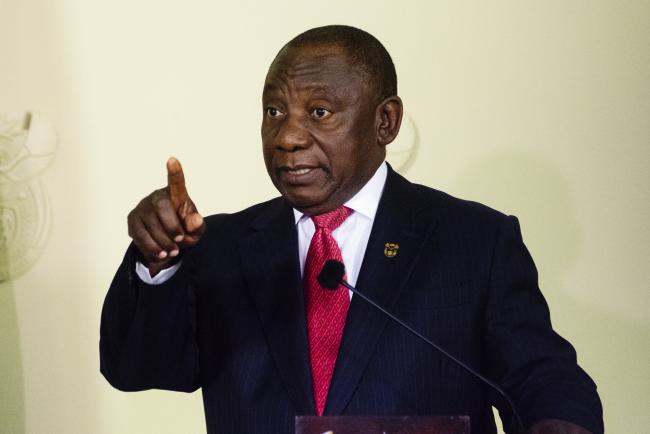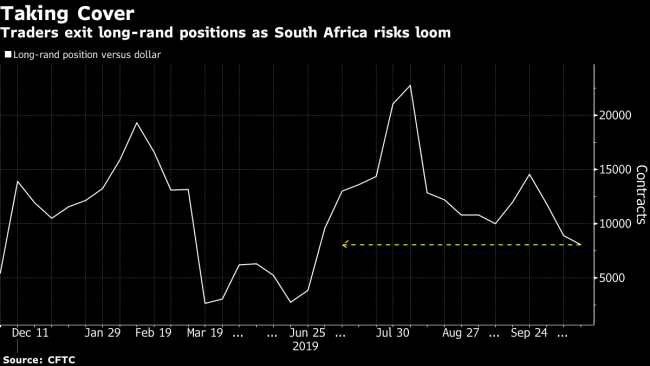(Bloomberg) -- Investors are prepared for the worst as the day of reckoning looms for Eskom Holdings SOC Ltd., the state-owned power utility seen by Goldman Sachs Group Inc (NYSE:GS) as the biggest threat to the country’s economy.
Yields on benchmark South African government notes are at their highest in three weeks, trumped only by junk-rated Nigeria, Turkey and Lebanon among 29 major emerging markets. Rand-denominated sovereign debt has lost 3% for dollar investors this half, the worst performance after Colombia and Argentina. Foreigners have dumped a net 25 billion rand ($1.7 billion) of the country’s bonds this year, cutting their holdings to 37% of the total, from 43% less than 18 months ago.
The rand has weakened 4.6% in the half to date, and is among the five worst-performing developing-nation currencies versus the dollar. Speculative long-rand contracts retreated to the lowest level in more than three months last week, Commodity Futures Trading Commission data show. When it comes to the cost of insuring South Africa’s debt against default, only Turkey and Argentina are more expensive.
Eskom, which supplies about 95% of the country’s power, has 450 billion rand ($30.5 billion) of debt and is surviving on state bailouts after massive cost overruns at two partially completed coal-fired power plants. The country endured four days of controlled blackouts last week to prevent total collapse of the grid. Power shortages and policy uncertainty have damped economic growth and plunged business confidence to multi-decade lows as investors await the government’s turnaround plan for the utility.
“These outages threaten South Africa’s fragile growth profile,” Siobhan Redford, a Johannesburg-based analyst at Firstrand Bank Ltd., said in a client note. “Clarity and certainty on plans for Eskom -- both in terms of financing needs and returning to a more sustainable power generation profile -- are vital in boosting the confidence of both domestic and offshore investors.”
South Africa will “soon” announce the appointment of a permanent chief executive officer for the utility and “shortly” release a special paper on the path the CEO and a strengthened board should take, President Cyril Ramaphosa said in a statement on Monday, in which he described Eskom’s financial situation as “untenable.”
“The sheer scale of Eskom’s debt is daunting,” Ramaphosa said. “Further bailouts are putting pressure on an already constrained fiscus.”
Lingering Uncertainty
The bailouts will probably widen South Africa’s budget deficit to the biggest since the financial crisis, threatening the country’s last remaining investment-grade credit rating at Moody’s Investors Service, according to a Bloomberg survey of economists. Moody’s is scheduled to review the assessment on Nov. 1, days after the mid-term budget is presented to lawmakers.
A risk premium was priced in to the rand and local debt partly due to weak economic fundamentals and uncertainty on the future of Eskom, the medium-term budget policy statement and the credit assessment from Moody’s, said Elna Moolman, a Johannesburg-based economist at Standard Bank Group Ltd.
Last week, the government published its latest Integrated Resource Plan, which maps out the energy mix for the next decade. It includes a switch to more green energy as the country, which sources most of its electricity from coal, faces pressure to meet emissions-reduction targets.
South Africa will develop a framework to take aging coal-fired plants out of service, Ramaphosa said. While this will present challenges for communities and workers where fossil fuel-powered energy generation takes place, “it also presents opportunities for those affected to have access to technologies that are more cost-effective and better for human health.”

